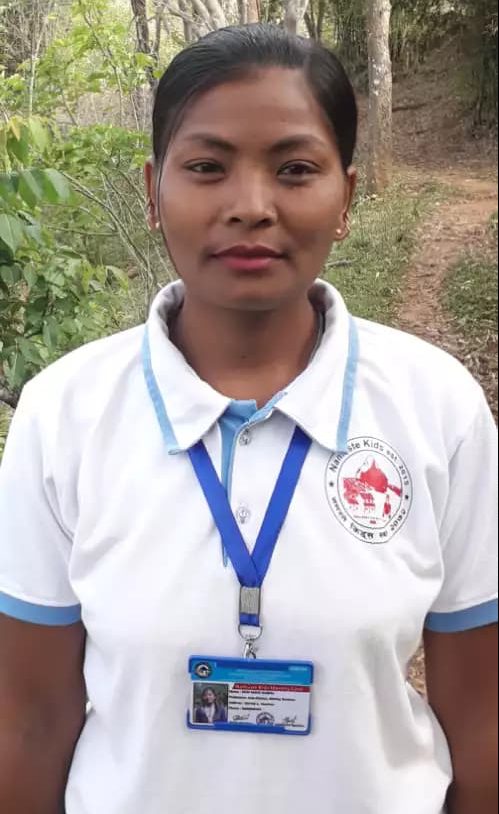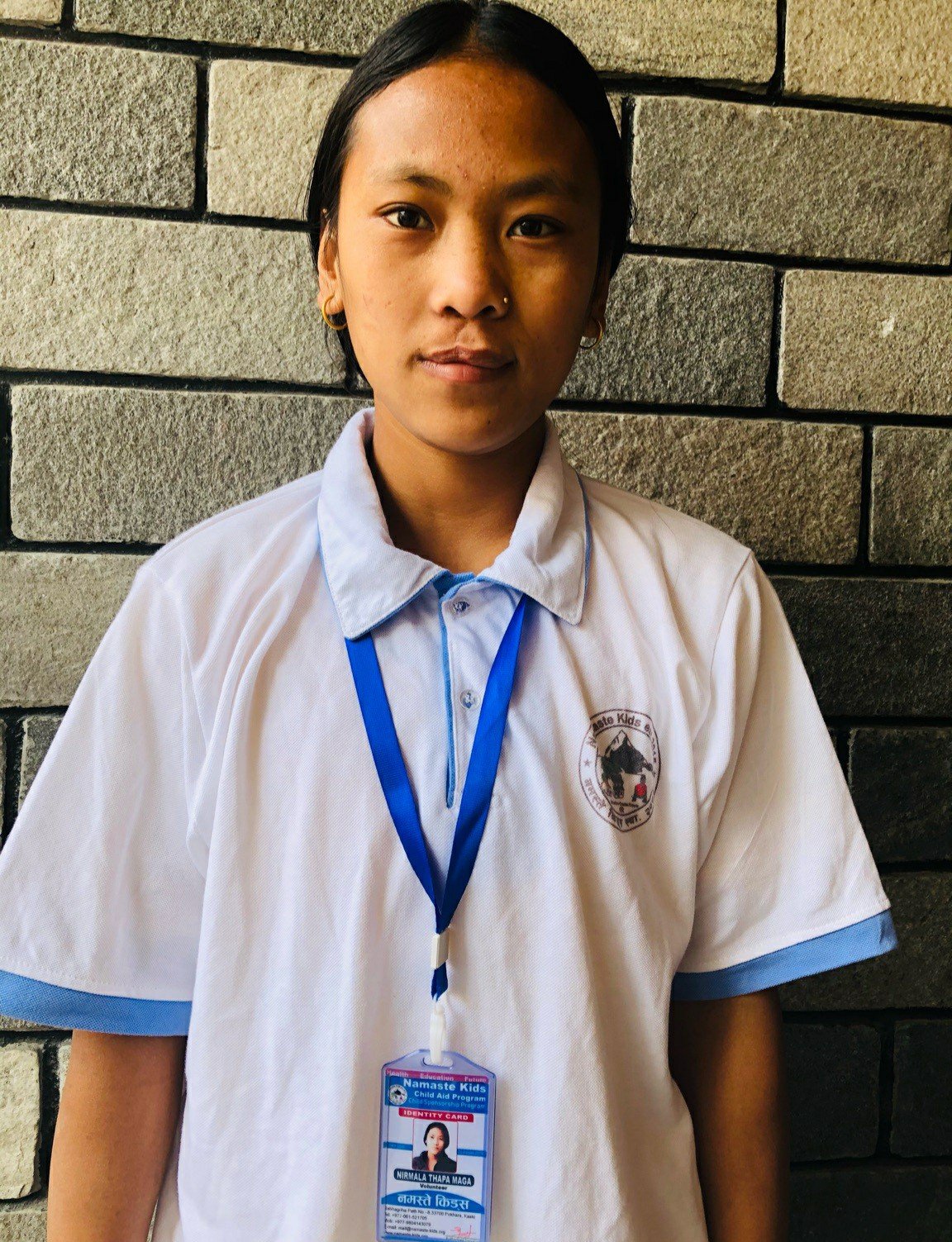
Beni Maya Kumal ist unsere Mitarbeiterin im Distrikt Nawalparasi und der angrenzenden Region Ghiring des Distriktes Tanahun. Beni Maya ist Lehrerin an der dortigen Grundschule. Zu ihren Aufgaben im Rahmen ihrer Tätigkeit für Namaste Kids gehört vor allem die Betreuung der Patenkinder, insbesondere der Mädchen in dieser Region. Da die Besiedlung in Nawalparasi sehr gering und weitläufig ist und es keine Straßen und Geschäfte gibt, muss sie mehrmals wöchentlich weite Strecken zurücklegen, um die Patenkinder zu betreuen. Darüber hinaus koordiniert sie gemeinsam mit Betreuer Khem Bahadur Nepali unsere Bildungs- und Gesundheitsprojekte dort. Beni lebt mit ihren Eltern in Bungdikali, einem Gaunpalika (Gemeinde) im Norden Nawalparasis.
Wie bewerten Sie die Arbeit von Beni Maya Kumal mit Ihrem Patenkind ?
Unsere Betreuer für die Patenkinder arbeiten alle praktisch ehrenamtlich. Sie haben alle eines gemeinsam: sie sind jung, sozial engagiert und kommen selbst aus armen Verhältnissen. Beni Kumal ist 28 Jahre alt und arbeitet als Grundschullehrerin. Sie erhält pro Patenkind, das sie betreut 500 Nepalesische Rupees im Monat (ca. 4,30 Euro). Dieses Geld kommt aus einem Spendenpool des Vorstandes und ist gemessen am Arbeitsaufwand wenig. Besonders in den Bergregionen des Himalaya sind die Wege zu den Kindern weit und mühsam. Um die Patenkinder zu sehen ist Beni an mehreren Tagen in der Woche 1 bis 5 Stunden unterwegs, zusätzlich zu ihrer eigentlichen Arbeit als Lehrerin an der regionalen Grundschule. Hinzu kommen besondere Anlässe wie Geburtstage, der Einkauf der benötigten Dinge im Laufe eines Monats oder die noch intensivere Betreuung, wenn ein Patenkind beispielsweise erkrankt ist. Um die Fotos oder Videos der Kinder zu versenden, muss Beni auf einen etwa 30 Minuten von ihrem Elternhaus entfernten Hügel hinaufsteigen. Auch das Entgegennehmen der Post für die Patenkinder, die ihr aus unserem Büro in Pokhara per Bus oder Jeep zugeschickt werden, ist nicht ganz mühelos. Die nächste Busstation in der Region Ghiring befindet sich etwa 45 Minuten entfernt. Ein Schwerpunkt ihrer Arbeit ist neben dem sozialen Aspekt vor allem auch die emotionale Betreuung der Kinder. Sie muss daher für die Kinder/die Familien immer erreichbar sein.
Wir haben uns daher überlegt, dass wir das Patenportal auch nutzen möchten, um den Pateneltern die Möglichkeit zu geben, den Betreuern Wertschätzung ihrer Arbeit auszudrücken, in Form einer kleinen, einmaligen finanziellen Unterstützung. Es wäre für sie natürlich eine ganz besondere Anerkennung, ihre Arbeit für die Kinder in dem Wissen zu tun, dass diese von den Pateneltern in Deutschland positiv wahrgenommen wird. Es besteht dabei aber absolut keine Erwartungshaltung, denn sie machen diese Arbeit nicht des Geldes wegen.
Möchten Sie Beni ein kleine Wertschätzung ihrer Arbeit zukommen lassen ? Dann haben Sie hier die Möglichkeit dazu:




